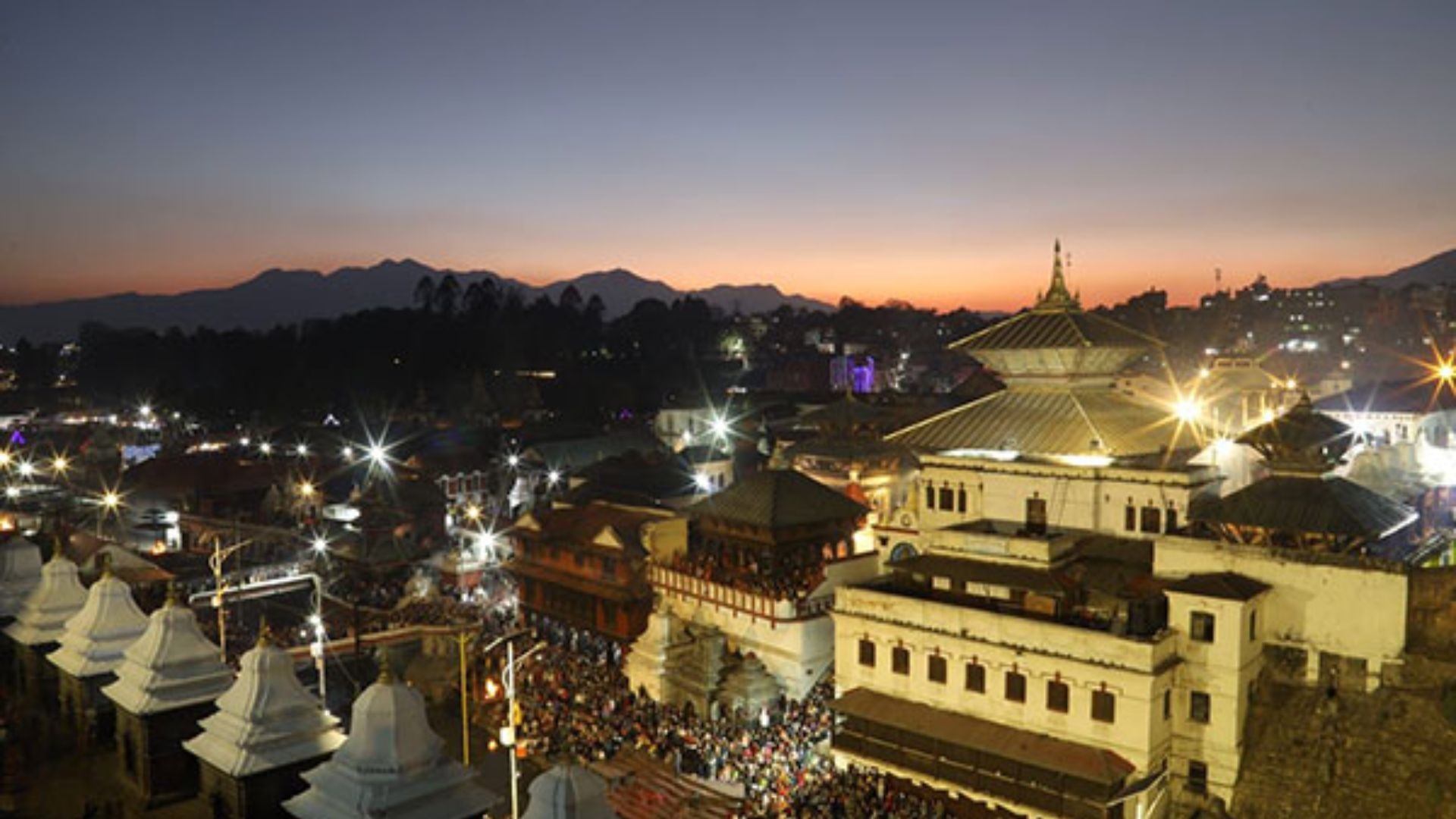Thousands of devotees thronged the Pashupatinath Temple in Kathmandu, marking the third Monday of the holy month of Shrawan, dedicated to Lord Shiva. Monday, known as Sombaar in Devanagiri, is derived from the Sanskrit word “Soma” meaning Lord Shiva, and “baar” meaning day. The month of Shrawan, the fourth month of the lunar calendar, is dedicated to Lord Shiva, and it is considered even more auspicious if there are five Mondays in the Shrawan month, a rare occurrence.
The month of Shrawan marks the beginning of many festivals for the next seven months until Maghe Sankranti (the first day of the month of Magh). Fasting on Mondays during Shrawan signifies devotion to Lord Shiva. It is believed that these fasts help cleanse the soul and revitalize the body. During Shrawan, devotees go barefoot to Shiva temples, carrying sacred water from springs as an offering.
Suraj Acharya, a devotee who traveled to Pashupatinath Temple in Kathmandu from his Bolbom Yatra, explained, “On Monday of Shrawan, we wake up early, walk uphill to Sundarijal to fetch water from the spring, and offer it in the Pashupatinath Temple. We eat only vegetarian foods, take holy baths, wear clean clothes, and sing hymns and prayers of Bholenath the entire day.” According to devotees, the Bolbam participants, also referred to as “Kanvars,” undertake the journey to cleanse the soul and relieve the mind of pressure.
Another devotee, Suraj Acharya, shared, “We worship and follow Lord Pashupatinath. Amidst our busy daily lives and work pressure, at least we can dedicate a day to God, purifying our minds and indulging in peace. We make this day special through devotion.”
Though anyone can observe the fast, it is most popular among women, particularly unmarried ones. It is believed that fasting helps unmarried women find a life partner of their choice, while married women observe the fast for the prosperity, peace, and well-being of their family members.
Shrawan holds a special place in Hindu mythology as it is during this time that Lord Shiva consumed poison extracted during the churning of the ocean (Samundra Manthan). Goddess Parvati is believed to have observed the fast and obtained Lord Shiva as her husband. Devotees undertake fasting and offer prayers to seek the blessings of Lord Shiva during this period.
The significance of the month extends beyond its religious aspects. The practices observed during Shrawan, such as fasting, abstaining from non-vegetarian foods, and engaging in spiritual activities, are believed to have health benefits. Fasting is said to cleanse the body of toxins, while the spiritual activities help in reducing stress and promoting mental well-being.
The atmosphere at the Pashupatinath Temple during Shrawan is vibrant and filled with devotion. Devotees from all walks of life come together to celebrate their faith, making the temple a bustling hub of religious activity. The rituals performed, the hymns sung, and the collective devotion of the people create an environment of spiritual upliftment and communal harmony.
The month of Shrawan and the observance of fasting on Mondays hold deep religious and cultural significance for Hindus. The practices and rituals associated with this period not only enhance spiritual devotion but also contribute to physical and mental well-being. The devotion of the thousands who gather at Pashupatinath Temple is a testament to the enduring faith and cultural richness of Hindu traditions.























